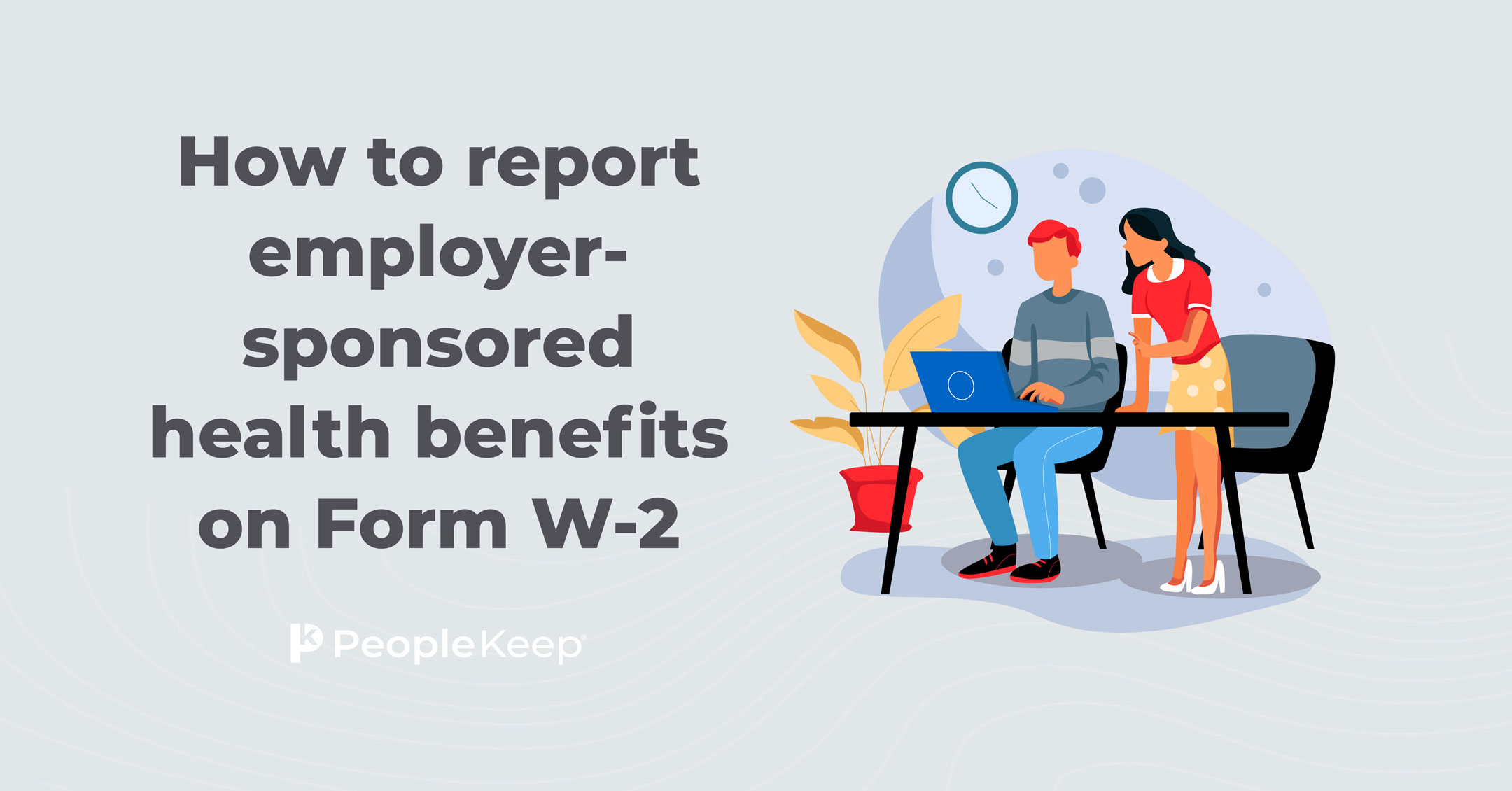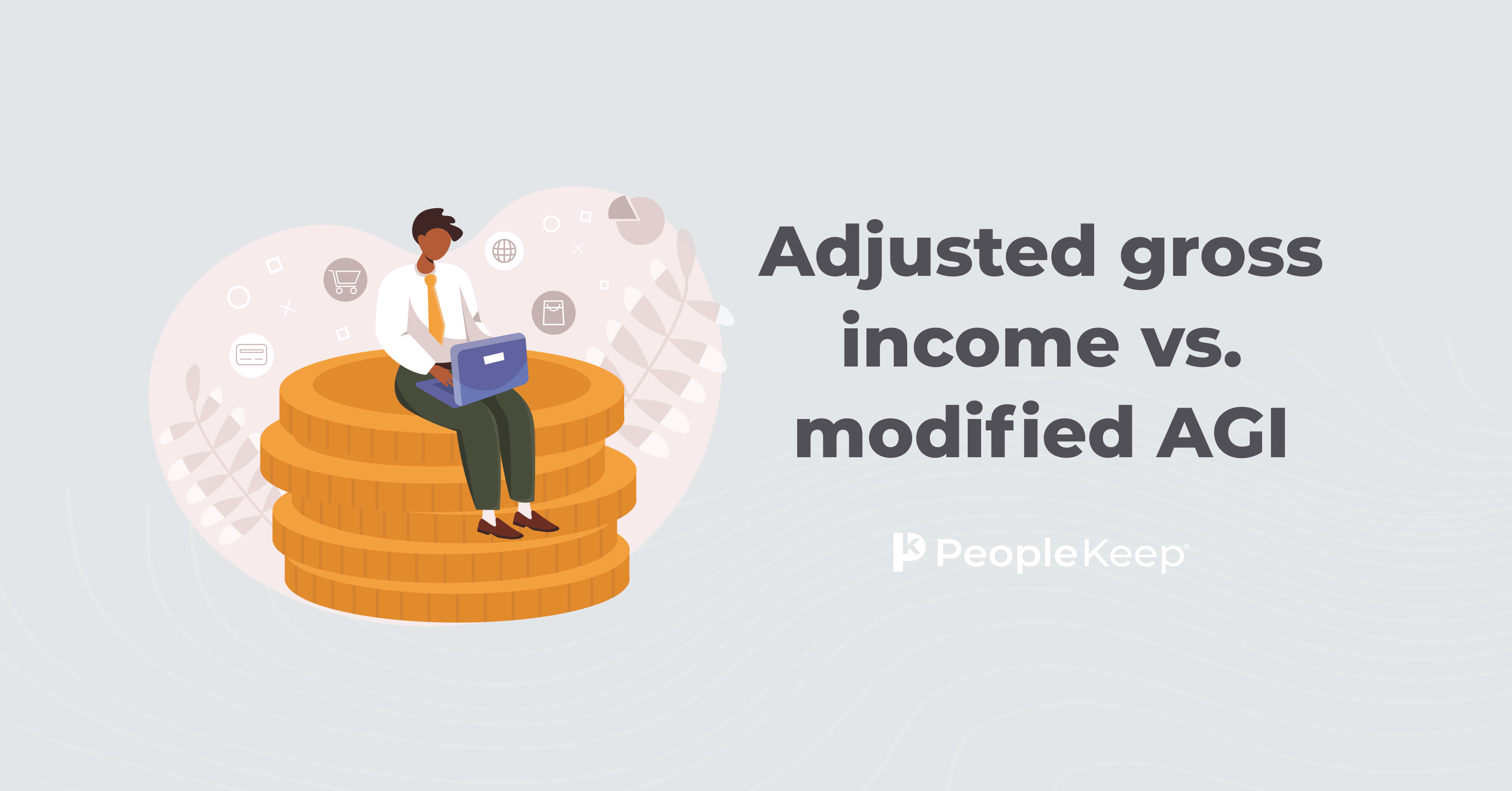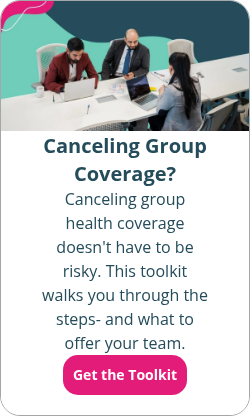What is a health benefits navigator?
By Elizabeth Walker on April 19, 2024 at 10:15 AM
If your employer offers an employee benefit like a health reimbursement arrangement (HRA), you’ll likely be shopping for an individual health plan on the federal or state exchanges, known as the Health Insurance Marketplaces.
If this is your first time choosing a health insurance plan, there are several ways to get help, including health benefits navigators. In this article, we’ll go over what a health insurance navigator is, how they differ from agents and brokers, and how they can help you find a health insurance plan for you and your family.
Takeaways from this blog post:
- Health benefits navigators are trained individuals who help consumers and small businesses shop for health plans. They have many duties, including public education, eligibility and enrollment assistance, post-enrollment services, and more.
- Navigators must be unbiased and provide free services to consumers as a federal benefit.
- Utilizing tools like the KFF premium calculator to determine premium tax credit eligibility or working with an insurance broker or agent can also help you find the best health plan for your needs and budget.
What is a health benefits navigator?
A health benefits navigator is an individual or entity trained to help consumers and small businesses shop for forms of health coverage through the Marketplace. Navigators also help individuals fill out their eligibility and enrollment forms during the application process.
By law, navigators must recommend unbiased social services and provide them free of charge to all consumers as a federal benefit. The Affordable Care Act (ACA) requires state exchanges to establish a navigator program to help eligible individuals purchase health insurance coverage through the exchanges, learn about their new coverage options, and enroll in a plan.
Navigators must complete various compliance requirements before assisting consumers. Requirements include federal navigator training, criminal background checks, and state training and registration (if applicable).
State-run exchanges have their own certification and training for navigators. However, the Centers for Medicare and Medicaid Services (CMS) conducts the certification and training for navigators who work with the federal Marketplace.
Annual training courses can take between five and 20 hours, not including the time spent on each course's certification exams. The government provides annual recertification programs and other training to keep navigators updated on health insurance-related issues.
Lastly, navigators can’t receive a commission from health insurance companies. Instead, state and federal programs pay them via grants. For instance, the federal government gave $99 million to 57 navigator organizations in 29 states in 20231.
What does a health benefits navigator do?
Health benefits navigators have a wide range of duties, including:
- Conducting public education about the availability of qualified health plans
- Distributing fair, impartial information about enrollment in qualified plans and eligibility for premium tax credits, Medicaid, CHIP, and other cost-sharing assistance in the exchange
- Facilitating enrollment in and specific post-enrollment duties for qualified health plans
- Referring people who need help resolving a problem with their health plan or with their premium assistance to a consumer assistance or ombudsman program or another appropriate agency that can help with a grievance or appeal
- Providing information to exchange consumers in a culturally and linguistically appropriate manner
Navigators also provide targeted health insurance assistance in vulnerable communities and post-enrollment services. These services include help with appeals, assistance with premium payment issues, information about how to use your health coverage, and help understanding how subsidy reconciliation works.
Who can become a benefits navigator?
The law lists many different kinds of entities that could become navigators, including:
- Community programs and consumer-focused nonprofits
- Trade, industry, and professional associations
- Commercial fishing, ranching, and farming organizations
- Chambers of commerce
- Unions
- Small Business Administration community resource partners
- Licensed insurance agents and brokers
- If a licensed health insurance agent or broker serves as a navigator, this disqualifies them from acting as a traditional producer (selling policies on or off the exchanges and receiving commissions)
To be eligible to receive navigator grants, an entity must meet the following criteria:
- Establish relationships
- The entity must already have relationships or be readily able to establish relationships with the employer or employees, consumers (including uninsured and underinsured consumers), or the self-employed individuals they’re serving
- Capable of performing duties
- The entity must be capable of performing the duties of a navigator, as described above
- Meet the following standards established by the Secretary of HHS
- Navigators are qualified and licensed (if appropriate)
- Navigators avoid conflicts of interest
- Navigators aren’t health insurers
- Navigators don’t receive direct or indirect compensation from an insurer in connection with enrollment of any exchange-eligible individuals or employers in a qualified health plan
- Deliver fair and impartial information
- The HHS Secretary and states will develop standards to ensure that navigators deliver fair, impartial, and accurate information
How are health benefits navigators different from agents and brokers?
While benefit navigators, agents, and brokers offer similar community services, a few differences make navigators stand out. First, navigators are there to help you solely with shopping for a plan on the government exchanges—nowhere else. On the other hand, agents and brokers can help determine coverage for eligible people in off-exchange plans.
Agents and brokers can also make personal recommendations and advocate for you if you run into trouble with an insurance company. Navigators can’t make these kinds of personal recommendations and will need to refer you to another appropriate agency if you have a problem with an insurance company.
The following chart helps break down major similarities and differences between health benefits navigators and health insurance agents and brokers:
|
Health benefits navigators |
Health insurance agents/brokers |
|
|
Are their services free? |
Yes |
Yes |
|
Can they help you apply for a premium tax credit? |
Yes |
Yes |
|
Can they help you understand health plans on government exchanges? |
Yes |
Yes |
|
Can they help you understand health plans that aren’t on government exchanges, like alternative health coverage options? |
No |
Yes |
|
Can they offer recommendations based on your personal needs? |
No |
Yes |
|
Can they act as an advocate if you have problems with an insurance company? |
No |
Yes |
|
Are they required to be licensed in every state? |
No, but they must meet state and federal requirements. |
Yes |
How can I find a health benefits navigator?
If you have a healthcare benefit that requires you to choose your own policy on the Marketplace, the type of exchange you use will determine how you can find a navigator.
If you use a state-based exchange, the platform will direct you to your state’s website to find a navigator in your area. If your state uses the federal Marketplace on HealthCare.gov, enter your ZIP code into the “find local help” tool to see the navigators in your area that can help you enroll in health policies.
Remember to filter for “assisters” to see only navigators and enrollment counselors in your area. Otherwise, your results will include brokers and agents as well.
Are there other ways I can get help shopping for health insurance?
Shopping for health insurance on your own can be an arduous process. Luckily, if your employer offers you an HRA through PeopleKeep, you can shop for a policy from your account dashboard.
You can also use tools such as the KFF premium calculator to determine if you’re eligible to receive any subsidies or premium tax credits to help you lower the cost of your health insurance premium2.
The 2024 federal poverty level annual income requirement is $15,060 for single individuals and $31,200 for a family of four. However, all Americans purchasing health insurance on a public exchange will pay at most 8.5% of their household income for the benchmark-level silver plan through the end of 2025.
Not only can you shop for the health plan that best suits your needs with an HRA, but you can also have your health insurance premiums and other qualified medical expenses reimbursed each month, tax-free, with the allowance your employer offers. This gives you more control over your healthcare and greater financial support in managing your medical bills.
Conclusion
Whether it’s your first time shopping for a health insurance plan or you’d just like a little extra help, health benefits navigators are a great community benefit for consumers exploring the federal and state exchanges for a health insurance plan.
With assistance from benefits programs like navigators, you can review your current health insurance coverage and determine where to make changes to fit your needs and budget. Their free services help provide health coverage to millions, taking the stress and confusion out of navigating the world of health insurance on your own.
This article was originally published on February 26, 2013. It was last updated on April 19, 2024.
1. https://www.cms.gov/files/document/2023-2024-navigator-awardee-summaries.pdf
Check out more resources
See these related articles

How to report employer-sponsored health benefits on Form W-2
Unsure how to report employer-sponsored health benefits on your Form W-2? This blog has clear explanations and examples to help you navigate the process.

Adjusted gross income vs. modified AGI
Confused about AGI and modified AGI? This concise guide breaks down the differences and helps you navigate your tax calculations with ease.

Minimum contribution requirements: Group health insurance vs. HRAs
Confused about employer contribution rules for health insurance and HRAs? This article breaks down the minimum requirements to help you navigate your options.



